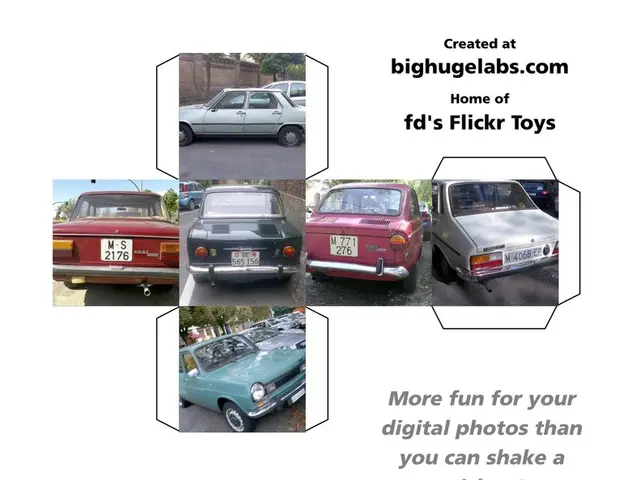Tech giant Apple plans to utilize entirely recycled cobalt for battery production by the year 2025
In a commendable effort towards a greener future, Apple has been making significant strides in environmental conservation and sustainable practices.
Since 2019, Daisy, Apple's iPhone disassembly robot, has recovered more than 11,000 kilograms of cobalt. This robot, along with Apple's Dave robot deployed in China, has been instrumental in the recovery of rare earth elements, particularly in disassembling Taptic Engines.
Apple's commitment to environmental responsibility extends beyond recycling. The tech giant partners with organisations like the Fund for Global Human Rights to support human rights and environmental defenders, and provides vocational education programs for communities moving away from mining.
In terms of material sourcing, Apple plans to use 100 percent certified recycled tin soldering and 100 percent certified recycled gold plating on all Apple-designed printed circuit boards by 2025. By 2025, all magnets in Apple devices will also use entirely recycled rare earth elements.
Apple's environmental work is not just about reducing carbon footprint, but also about reducing waste. The innovation of a new overprint varnish found in iPad Air, iPad Pro, and Apple Watch Series 8 packaging has replaced the polypropylene plastic lamination found on boxes and packaging components, helping avoid over 1,100 metric tons of plastic and over 2,400 metric tons of carbon dioxide.
Apple is also working to eliminate plastics from its packaging, with the development of fiber alternatives for packaging components. Additionally, Apple has developed a custom printer to introduce digital printing directly onto the boxes of iPhone 14 and iPhone 14 Pro, eliminating the need for most labels.
By 2025, Apple aims to use 100 percent certified recycled cobalt in all Apple-designed batteries. This is a significant step towards Apple's goal of using only recycled and renewable materials in all its products. In 2022, about 20 percent of all material shipped in Apple products came from recycled or renewable sources.
Apple's work in recycling and disassembly is driving industrywide change. The company was the first electronics company to publish a list of cobalt and lithium refiners in its battery supply chain, with cobalt in 2016 and lithium in 2020. Every identified smelter and refiner for tin, tungsten, tantalum, and gold in Apple's supply chain has participated in independent third-party audits since 2015.
Apple's environmental efforts are integral to its products, with the aim to make all products with only recycled and renewable materials. The company's dedication to sustainability is a testament to its commitment to a greener future. However, as of the current search results, no explicit organisation that has committed since 2023 to using 100% recycled cobalt, rare earths, and gold exclusively for gilding and soldering has been identified or named.
In conclusion, Apple's environmental work is a shining example of corporate responsibility and a commitment to sustainability. The company's efforts are driving change in the tech industry, setting a high standard for environmental stewardship in the digital age.
Read also:
- Solar energy company, Imperium, alongside QORAY Mobility & Energies Solar Business, bolsters Nigeria's environmental future by producing superior solar panels domestically and offering flexible payment options.
- AI Inspection Company, Zeitview, Secures $60 Million Funding for Expansion
- "Worldwide Initiative Introduces Scheme to Boost Eco-friendly Entrepreneurship in Underdeveloped Regions Worldwide"
- Experiencing Communications with My Spiritual Guardian Involves a Series of Experiments








